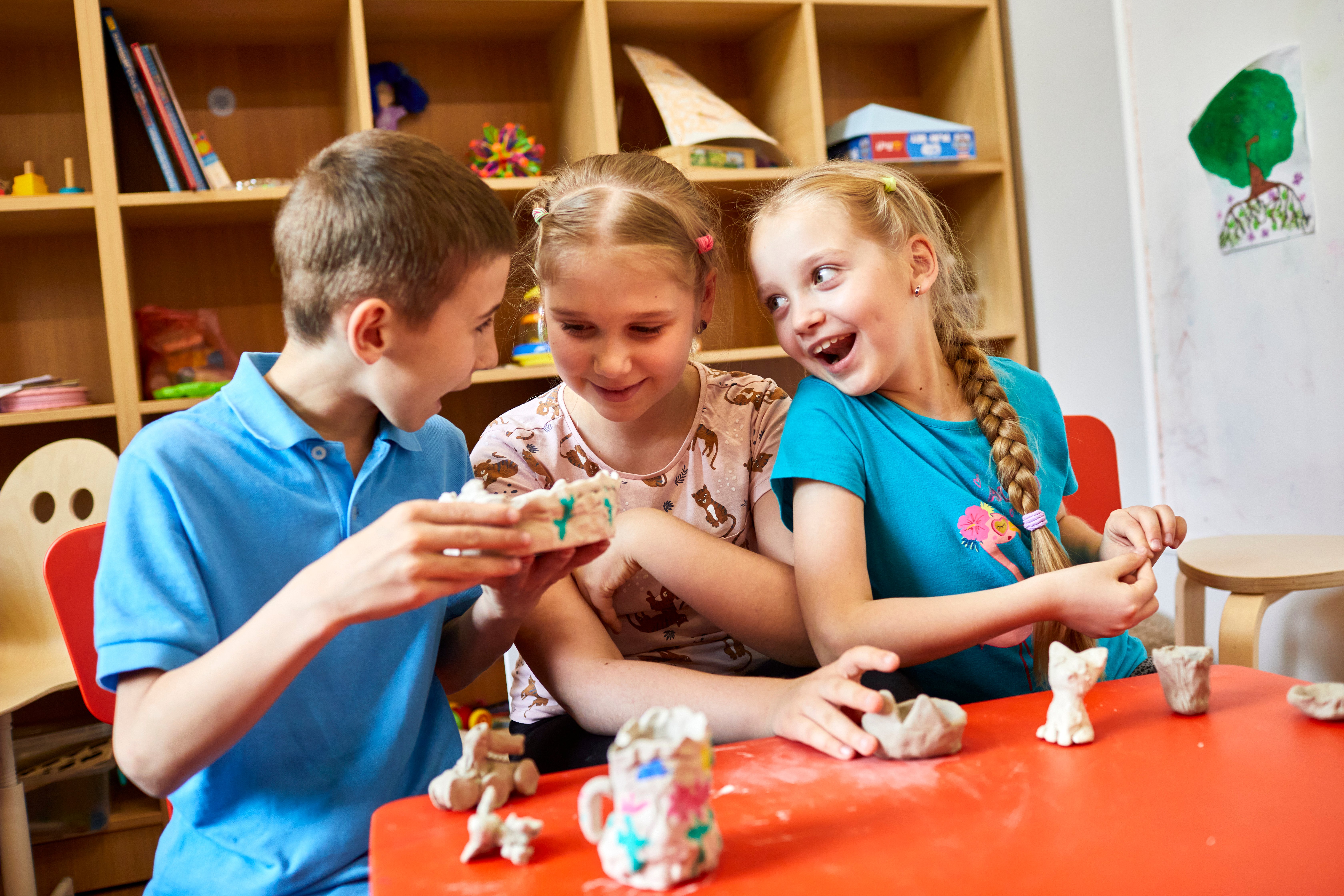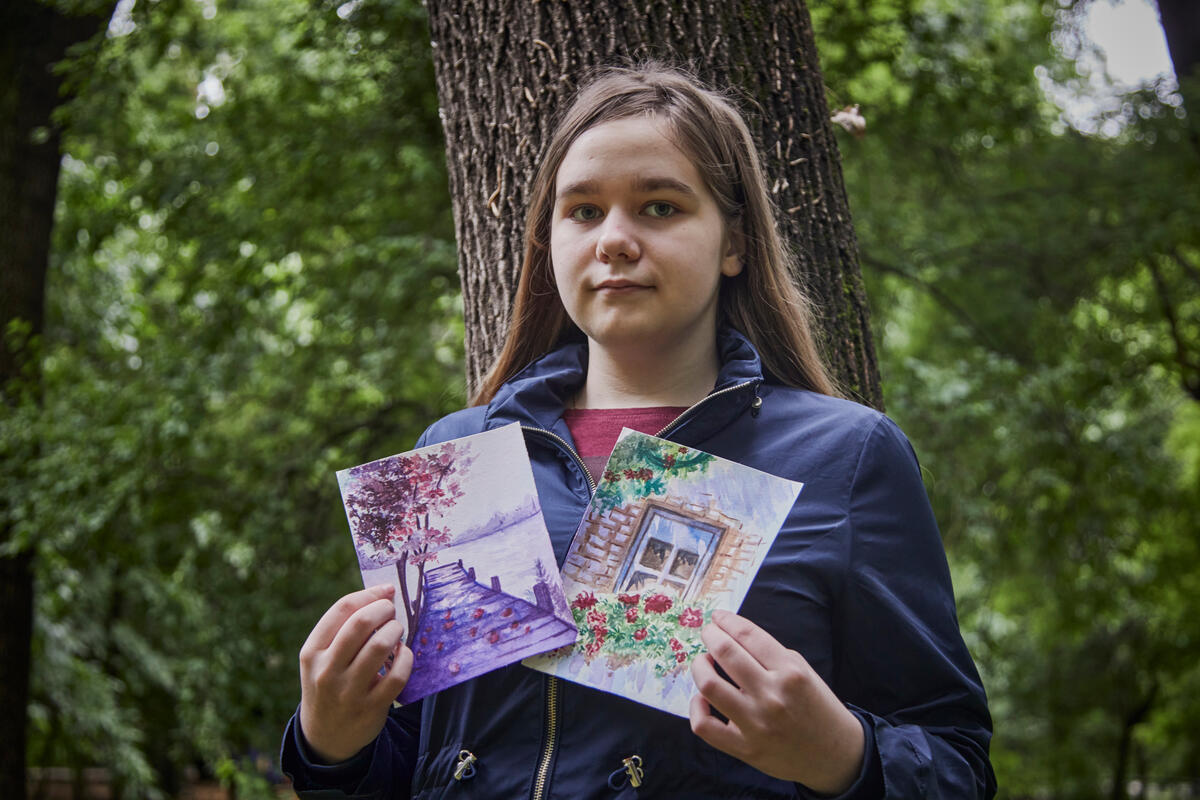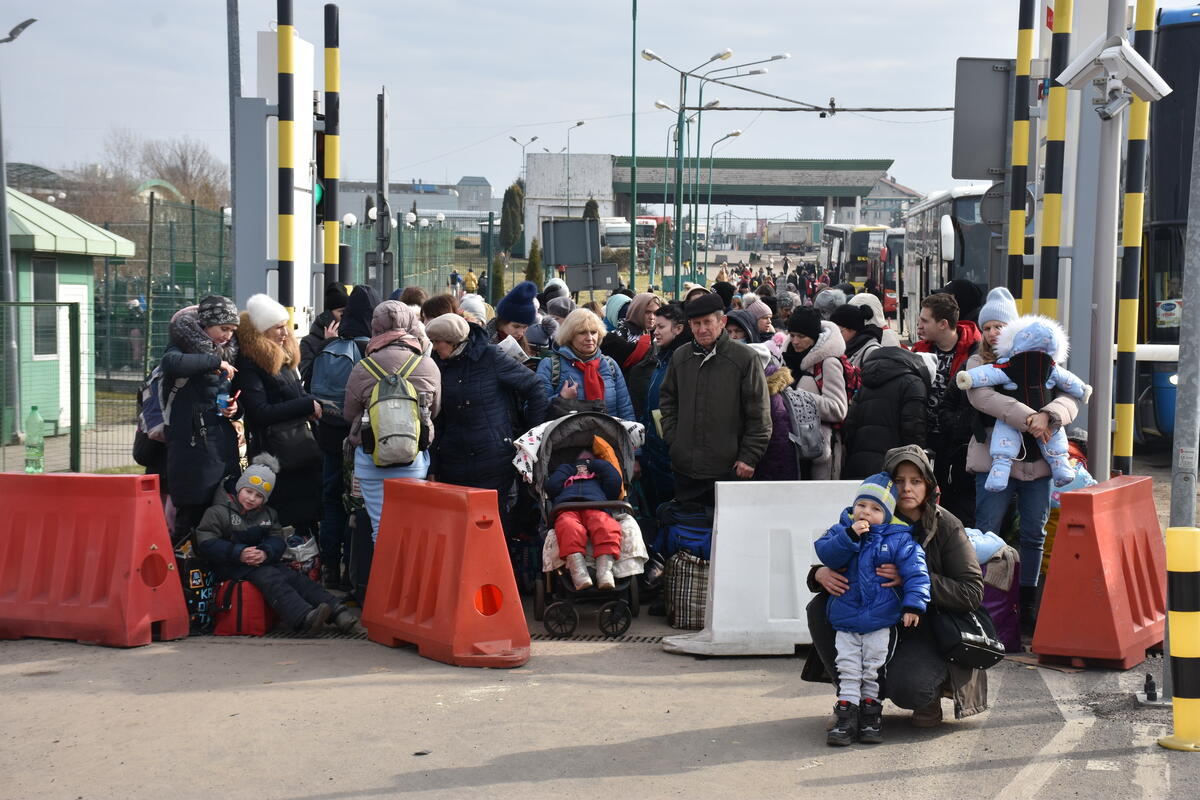From Ironman to doctor? Romanian hospitality may make it possible
From Ironman to doctor? Romanian hospitality may make it possible

BAIA MARE, Romania, October 20 (UNHCR) - Kamal Saadik's day starts at five in the morning with a brief workout, an apple for breakfast and an invigorating bicycle ride to his job toiling over an ironing board eight hours a day at a clothing factory in northern Romania.
His workplace, a large hall filled with more than 50 busy people, may look and sound to the casual visitor like a noisy, crowded labyrinth of sewing machines, fast-moving pieces of cloth and ironing boards.
But for the 26-year-old Iranian refugee, the tailoring workshop is a small island of peace, a place he can call home. "This place is nice, clean and sunny, and I like it," he says from his ironing board by a large open window. And his co-workers and the Romanians he has met along his journey have replaced his lost family.
"His job is not easy at all," says Kamal's supervisor, known by all as Mother Mia. "I don't know how he does this, but he never complains and always has a kind word for others. We love him."
As proof, last winter his co-workers made him a warm quilt to get him through the city's cold nights. "It was my New Year's present, the most wonderful gift in a long time," Kamal says.
It had been years since Kamal had much to smile about. He describes his homeland in western Iran in vivid language - its majestic mountains, crystal clear springs, the roof terraces of its stone houses. But when he gets to the events that forced him to flee, leaving behind his parents, words fail him. "Some things happened and I had to go," is all he will say.
After a perilous journey across Turkey and Bulgaria, the young man reached safety in Romania, where he applied for asylum; he was recognized as a refugee two years ago. Kamal started his new life in a government-run reception centre in Somcuta Mare, a small town close to the border.
The language proved to be the first of many challenges. At a small shop, Kamal had to point at the food he needed, but found an ally in the local shopkeeper. "The shopkeeper kept telling me 'this is bread, say after me, bread.' This was how I learned my first Romanian words," recalls Kamal, who now speaks fluent Romanian with a local accent.
Since then he's recruited many others as his "teachers." One of his formal teachers was Anca Pascui, who recalls that Kamal had to start from scratch, learning the Latin alphabet as well as the Romanian language.
She remembers Kamal as very ambitious. "One day he cracked his first joke in Romanian. His eyes were laughing and they were telling me: 'Your efforts were not in vain.' It was a magic moment."
Those ambitions do not end at an ironing board in a clothing factory. His real dream is to be a doctor. In his haste to leave Iran, he left behind his documents that proved he had finished high school. This has so far prevented him from entering university in Romania.
But once again the Romanian community has come to his rescue. Earlier this year his language teacher, Anca Pascui, and local authorities teamed up to help Kamal enroll in an adult education programme which should eventually be a gateway to university.
It may take him a few years to achieve his dream of becoming a doctor, but the young man at the ironing board is confident he'll get there. "If you pursue a dream with energy and strength, you will succeed," he says with conviction.
By Gabriela Leu in Baia Mare, Romania









